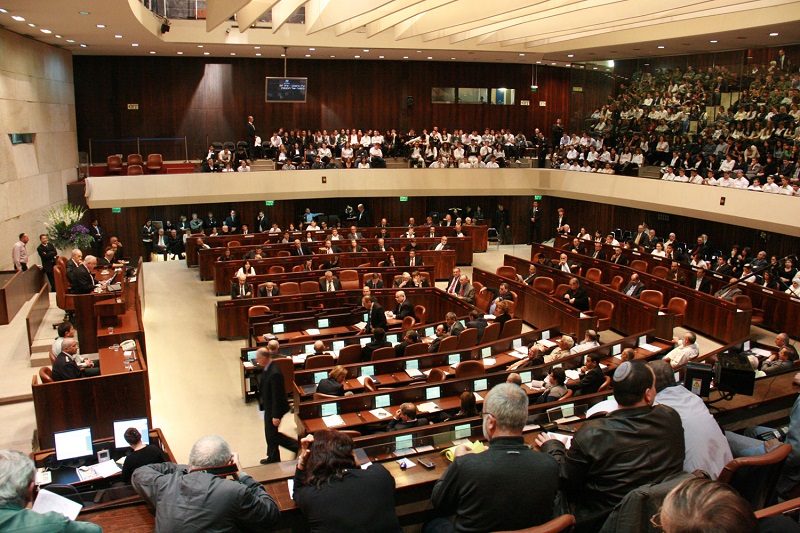
Related Content

September 12, 2019
What do I need to know about Israel’s election?
On September 17, 2019, Israel will hold an election for the 22nd Knesset.
The victor of the elections in Israel is determined by the party’s ability to form a coalition government (representing at least 61 seats in the Knesset), therefore making the balance of power between the right and left blocs a key issue. According to the Israeli political system, it is not the party which wins the largest number of votes or seats in the Knesset that will lead the next government, it is the party which is able to pull together a viable coalition. Since Israel’s founding, no political party has ever won a majority of Knesset seats.
There is a total of 32 parties running for 120 Knesset seats. In order to secure Knesset representation, a party needs to receive at least 3.25% of the votes (4 seats). Current polls project that there will be as many as 10 parties who will get enough votes to be represented in the next Knesset. The number of seats each party gets is distributed according to the percentage of votes they receive.
But wasn’t there just an election in Israel?
This election comes five months after Israelis went to the polls in April for the 21st Knesset.
Following that vote, Prime Minister Netanyahu, whose Likud party won the most seats, was tasked by Israeli President Rivlin with forming a government. This led to a two-month negotiation process between Likud and other right-leaning political parties, including ultra-Orthodox parties and the Israel Beitenu party led by Avigdor Lieberman. The Israel Beitenu party’s main demand was the passage of a law that would increase the number of ultra-Orthodox males drafted into the military, a demand that the ultra-Orthodox parties refused to support. This stalemate prevented PM Netanyahu from forming a government coalition and led the Knesset to vote for new elections.
Is ADL involved in the Israeli election campaign?
ADL is non-partisan and does not support or oppose candidates for any office, in the United States or overseas. ADL does monitor issues relating to racism, bigotry and hate in Israeli society, including those that manifest in the election campaign, and speaks out when appropriate.
ADL has spoken out on a number of issues during both the April and the current campaigns.
The mainstreaming of extremist parties: ADL expressed deep concern about the political mainstreaming of the Otzma Yehudit/Jewish Power party. The leaders of Otzma are self-identified disciples of the late U.S.-born Meir Kahane, an extremist rabbi who preached a radical form of Jewish nationalism that promoted unabashed and virulent anti-Arab racism, violence and political fascism.
In February 2019, it was announced that Prime Minster Netanyahu helped facilitate a merger between the Otzma party and the more mainstream right-wing Jewish Home party, reportedly to help build enough Knesset seats for a viable governing coalition. However, such a union served to bring Otzma Yehudit – with its far-right extremist policy agenda and its leadership with a documented history of racism, violence and radicalism – from the fringes into the political mainstream. ADL was one of the first American-Jewish organizations to speak out against this disturbing development (tweets available here and here). In addition, ADL published a blog on the reason there is such widespread concern, as well as an op-ed laying out our knowledge of this group and our record of denouncing it.
In the current election campaign, Otzma is running on its own, but could be included in a possible right-wing governing coalition.
In the April elections, the Central Election Committee voted to disqualify the Arab party Balad from participating in the election, while allowing far-right Otzma Yehudit MK Michael Ben Ari to run. Shortly after, the High Court overruled these decisions and allowed Balad to run while banning Ben Ari, though not the Otzma party. In the September elections, two additional Otzma members, Baruch Marzel and Benzi Gopstein, were barred from running by the High Court.
The Demonization of Israeli Arabs in Campaign Rhetoric: During both the current and April election campaigns, we saw the maligning of Israeli Arabs by certain Israeli political leaders as a way of attacking the views of rival political parties. These leaders accuse their rivals of seeking cooperation with the Arab political parties in an effort to portray them as extreme left-wing or even as working against Israeli interests. The effect of these accusations is the portrayal of Israeli Arab society as a whole as disloyal.
ADL issued a public statement calling on Israeli political leaders across the spectrum “to stop delegitimizing Israeli Arab political parties and vilifying the Arab minority population of Israel.”
How can I learn more about the Israeli Elections?
BICOM: Israeli Elections: Everything you need to know
Israel Policy Forum’s 120 Project
Israel Democracy Institute’s Guide to the Elections
Here We Go Again: A Beginners Guide to Israel’s 2nd Election in 2019 (JTA)









